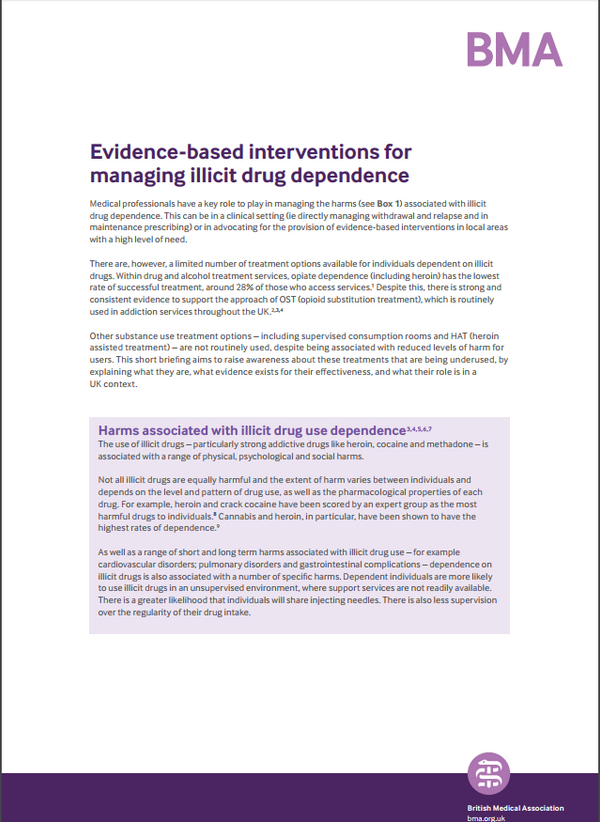Réduire les risques associés à l’usage de drogues illégales
L’Association Médicale Britannique souligne le rôle clé joué par les professionnels du domaine médical dans la gestion des risques associés à la dépendance aux drogues illégales. Pour en savoir plus, en anglais, veuillez lire les informations ci-dessous.
Abonnez-vous à l'Alerte mensuelle de l'IDPC pour recevoir des informations relatives à la politique des drogues.
Medical professionals have a key role to play in managing the harms associated with illicit drug dependence. This can be in a clinical setting (ie directly managing withdrawal and relapse and in maintenance prescribing) or in advocating for the provision of evidence-based interventions in local areas with a high level of need. There are, however, a limited number of treatment options available for individuals dependent on illicit drugs. Within drug and alcohol treatment services, opiate dependence (including heroin) has the lowest rate of successful treatment, around 28% of those who access services. Despite this, there is strong and consistent evidence to support the approach of OST (opioid substitution treatment), which is routinely used in addiction services throughout the UK. Other substance use treatment options – including supervised consumption rooms and HAT (heroin assisted treatment) – are not routinely used, despite being associated with reduced levels of harm for users. This short briefing aims to raise awareness about these treatments that are being underused, by explaining what they are, what evidence exists for their effectiveness, and what their role is in a UK context.
Keep up-to-date with drug policy developments by subscribing to the IDPC Monthly Alert.
